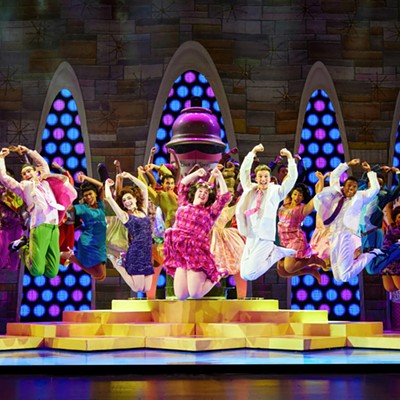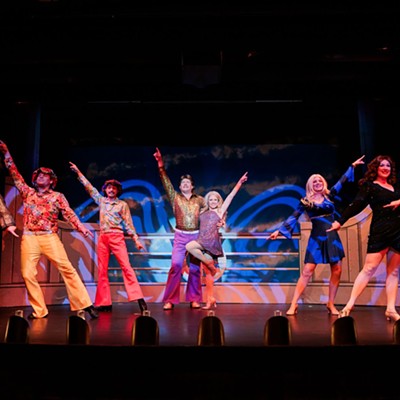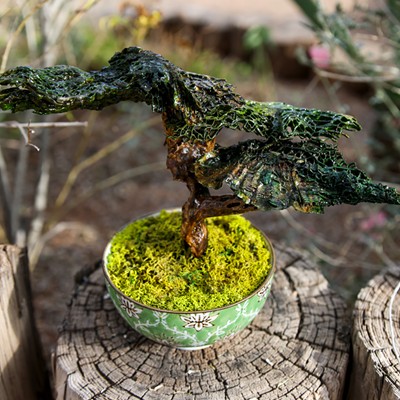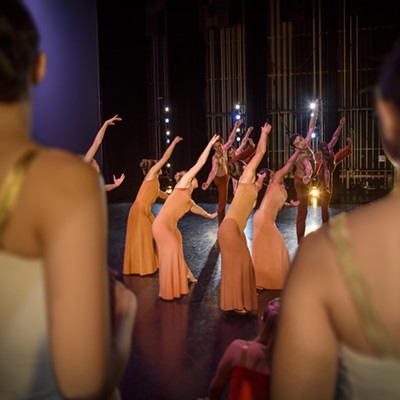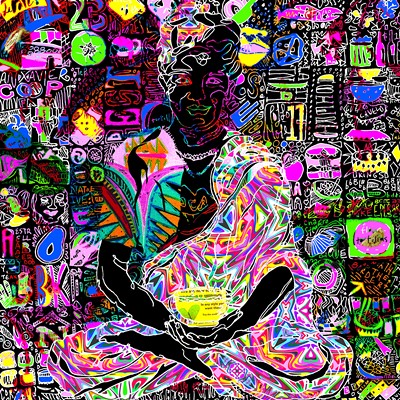It's 1934 and in a small, listless seaside town one of the islands of Aran off the west coast of Ireland. It's hard to identify, from the characters we meet, how this insulated community exists. The pace of life here is languid, to put it kindly. To be not so kind, it's slow and empty. Its inhabitants are a group of uneducated and unambitious folks scratching to make ends meet, and it's a wonder that they do.
They are not bad people; they're just small. They interact with one another mostly in kind ways, although a few demonstrate a mean streak from time to time. But even the ones who seem to enjoy bad behavior give us glimpses of softer sides.
This is Martin McDonagh's The Cripple of Inishmann, now on stage at Live Theatre Workshop. McDonagh is one of a sizeable group of Irish playwrights who lately populate Tucson stages with regularity, including Enda Walsh, Conor McPherson and Marina Carr. McDonagh's first play, The Beauty Queen of Leenane, is part of a trilogy; it received a Tony nod for Best Play in 1998. The Cripple of Inishmann is part of another trilogy. These plays were all written in a very productive period in '94.
In '03, bold and disturbing Pillowman garnered several awards, including the Laurence Olivier for Best New Play in '04, and received a '05 Tony Award nomination for Best Play. It's an explosive and downright scary script and departure from the other plays, which are all set in Ireland. In Bruges, a film that he directed as well as penned, was nominated for an Oscar for Best Screenplay in '08; his short film Six Shooter scored an Oscar in '05.
Here, the title's cripple, most ostensibly anyway, is Billy Claven (Gino Cocchi), a 17-year-old orphan who was born with a badly twisted body and has been raised by two—interesting, shall we say—"aunties." He's called "Cripple Billy," by his fellow citizens, who mean no offense. He's considered a bit daft, although from the moment we meet him he seems fairly normal, except for his twisted frame. We learn he's an avid reader, and one who stares at cows, but among this group that doesn't seem too peculiar. Besides, he may really be daydreaming of a way out of his little, limited life. Sure, he might be a bit subdued, or even morose, because those who call him a cripple have also placed a pretty bleak picture of life on him—an orphan, a cripple, a bit daft and certainly one with no good future. He will remain loveless and alone. But when he hears that a Hollywood film crew is coming to the islands, Cripple Billy rises above that which defines him and conspires to get to the location for a chance to be in the film. He doesn't tell his aunties, even when he is whisked off to America for a screen test. They are worried sick and take to eating compulsively and speaking to a rock.
McDonagh is a master storyteller, as are some of his characters. Often very funny, often very dark, he is unafraid to incorporate violence and cruelty into quite banal settings. But in Cripple, even as he reveals his characters› quirks and weaknesses and sometimes their downright foolishness, he seems to care for them even as he shows their quirks. They are not really the objects of his harsh ridicule. Through his humor we're drawn to them, outrageous as they are, and that allows us to laugh at them without being unkind.
LTW does a good job with often challenging material. The accents alone are challenge enough, and this strong cast does very well to sound authentic while keeping them not sounding so foreign to us as to be unintelligible.
Amy Almquist has assembled a very good cast. Carlisle Ellis and Rhonda Hallquist play the odd couple of aunties, and they both embody their quirkiness well. Hallquist in particular gives us a character hard not to love as she looks on the gloomy side of everything, and voices her gloom repeatedly in the same words, almost as an incantation conjuring the troubles. The two work well in tandem and really ground the play.
Patrick Burke creates a fine Johnny Pateen, a self-appointed reporter of all things of interest to his audiences, which essentially makes him a purveyor of gossip. He takes his job seriously and eavesdrops everywhere. He expects to be paid for his work, and for his great pieces of news is offered lamb legs, instead of the usual few eggs for the normal stuff. Roxanne Harley plays his ancient mother with whom he has a love/hate relationship. She's a tough old bird and the two banter and feud, which is good for many laughs.
Brie Zepeda, Adam Denoyer, Karl Haas and Brian Wees all contribute well. Recent high-school graduate Gino Cocchi plays Cripple Billy, demonstrating a strong talent, although perhaps overmatched with this experienced crew.
Although there is a plot, McDonagh throws a lot at actors, and in this production the emphasis is on the characters. The focus on Billy is almost peripheral, or at least it's not strong enough to give the proceedings a sense of drive. Consequently the production seems a bit flat, at least on the evening I attended. Maybe an off night.
McDonagh doesn't pull punches and the feeling he leaves us with is a harsh judgment on our crippled lives, twisted by fate, as well as our actions. This is a fine play and production and definitely deserves an audience.

